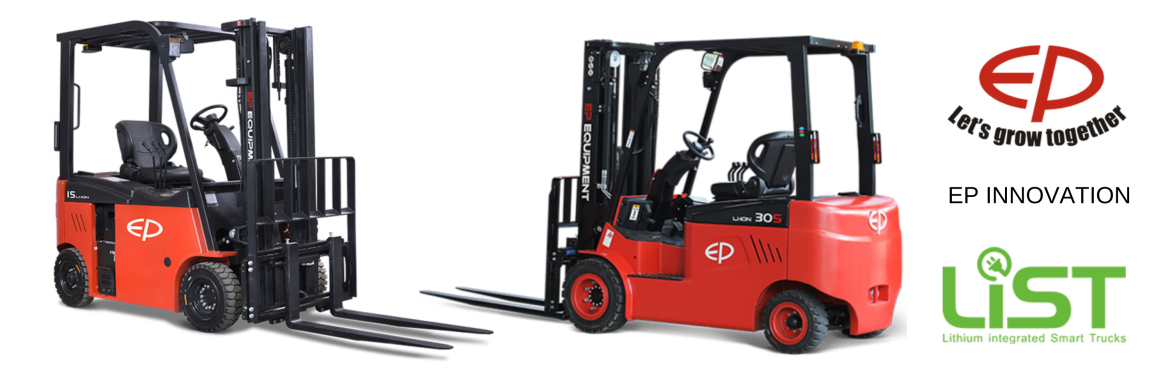
EP Lithium-Ion Forklift Trucks - the way of the future is here in Nelson!
The shift in world climate is a clear indicator of the urgency of switching to cleaner energy sources at every level. As the future of energy storage solution, Lithium-ion battery technology, provides sustainable changes in transforming our way to store and consume energy. Lithium-ion batteries have been widely adopted in the production of electric vehicles. With years of experience and achievements in research and development, EP has been dedicated to developing its lithium battery technology. EP Lithium-ion Forklifts trucks are widely used nationally and internationally in various industries, such as transportation and logistics, retail sector, general manufacturing, construction, food, and beverage industry. The benefits to adopting lithium electric forklifts in your business are: less pollution, higher energy efficiency, and lower maintenance costs.
CPD15/20/30/35L1 - ELECTRIC COUNTERBALANCE FORKLIFT TRUCK 1.5/2.0/3.0/3.5T
EP Equipment has produced the world's first real Li-Ion forklift truck, the L1 Li-Ion 4 wheel counterbalance truck. The chassis is designed around the advantages of Li-Ion technology and has the widest cabin space in the industry for a maximum in ergonomics. With quick charging and high performance, it is the perfect truck to replace IC forklift trucks. Priced from $28,000. 16 weeks delivery if not in stock.
ZERO MAINTENANCE
While lead-acid batteries need special maintenance, Lithium batteries don’t require active maintenance to extend their service life. That largely eliminates the costs of battery up-keep, maintenance and infrastructure.
LESS EXPENSIVE
It’s important to compare energy prices to ensure you’re getting a great deal for your Lead acid battery products and Li-ion ones.
In a nutshell, lead acid batteries may be less expensive from procurement perspectives, however, a lithium battery solution may contribute to a more cost-efficient warehouse operation in the long run:
- Less expense and energy spent on charging batteries
- No time and labour involved by swapping batteries
- Less time and labour spent maintaining and watering lead-acid batteries
- Reduced waste of energy (a lead-acid battery normally uses up to 50% of its energy through heat, while a lithium battery uses only up to 15%)
- Smaller overall battery size leads to similar purchase costs and offer the same or better autonomy due to opportunity charging.
MORE ENVIRONMENTALLY FRIENDLY
From an ecological point of view, it's non-toxic and harmless. Lithium batteries emits no gas so it is a much cleaner technology and is safer for the environment than lead-acid.
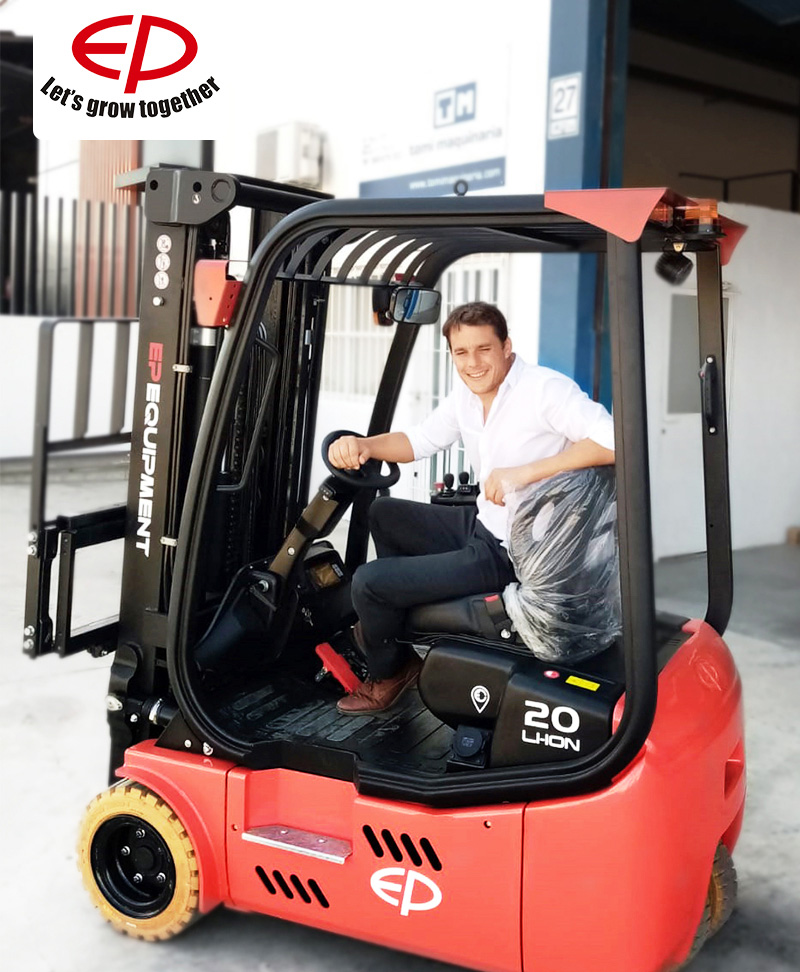
LONGER LIFESPAN
Lithium-ion batteries have a lifecycle of 3000 or more compared to just 500-1000 cycles in lead acid. Lithium-ion batteries generally last for several times the number of cycles as lead acid batteries, leading to a longer effective lifespan for lithium-ion products. Cycles are also counted in % of charge rather than one cycle every time you connect the battery to the charger. This means: 10% charge is 1/10 of a cycle with a Li-Ion battery, while a 10% charge at a lead acid battery is 1 full cycle.
OPPORTUNITY CHARGING
While lead acid batteries always need a full charge cycle of 8-12 hours to keep the batteries chemistry in balance, LI-Ion batteries really like opportunity charging. They can be plugged in the wall and charge for 10 Minutes during a lunch break. This offers a unique way to work your shifts and reduce the overall Ah carried around in the truck.
LIGHTER WEIGHT
Lithium-ion batteries offer high power density which cause lithium-ion batteries to be relatively small and light. It is only one-third the weight of lead-acid batteries. This offers manufacturers like EP the opportunity to develop the trucks with higher standards of ergonomics, bigger legroom and better performing trucks due to the smaller size and weight of the batteries.
HIGHER EFFICIENCY
Most lithium-ion batteries are 95 percent efficient or more, meaning that 95 percent or more of the energy stored in a lithium-ion battery is actually able to be used. Conversely, lead acid batteries see efficiencies closer to 80 to 85 percent.
FASTER CHARGING
Higher efficiency batteries charge faster, improved efficiency means a higher effective battery capacity. Lithium batteries takes 2-3 hours to charge while lead-acid needs 8 hours. Lithium batteries high effective capacity reduces downtime in warehouse duties.
LITHIUM BATTERY SAFETY CERTIFICATIONS
Battery safety is at the top of the list for both manufactures and end users. EP lithium batteries are rigorously tested and certified by universal standard practices in industry to ensure conformance to global standards where they are used.
EP Electric Forklift Truck - charging based data
| EP Model | Energy Consumption (kWh/h)* | Hours per annum | Battery charging factor | Chargers Efficiency | Annual Energy Costs | Annual CO2 Emissions |
| CPD30 | 7.6 | 1000 | 1.1 | 0.85 | $983.53 | 4,426 kg |
| CPD35 | 8.4 | 1000 | 1.1 | 0.85 | $1087.06 | 4,892 kg |
Comparative Gas Forklift Truck - fuel based data
| Comparison Model | Fuel Consumption (kg/h)* | Hours per annum | Cost of 1kg Gas | Annual Energy Costs | Annual C02 Emissions |
| Model 1 | 3.8 | 1000 | $2.00 | $7600 | 13,285 kg |
| Model 2 | 4.0 | 1000 | $2.00 | $7980 | 13,949 kg |
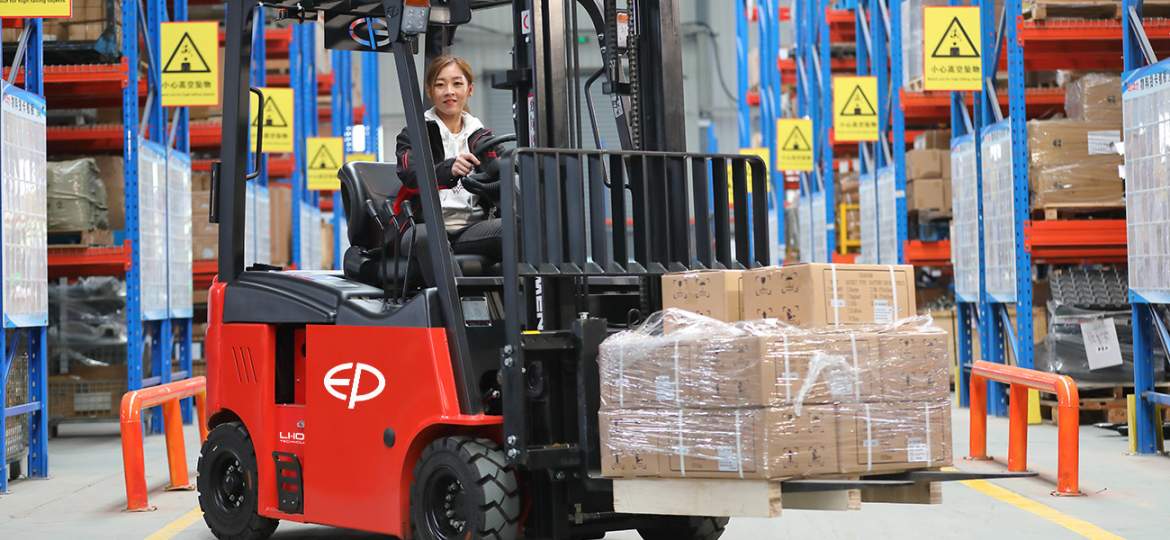
APPLICATION
The machine is more powerful than most of its competitors due to the Li-Ion technology built into the L1 counterbalance truck. It can be used outdoors also in the rain as it is water protected. Loading and unloading is where the L1 plays out its strength.
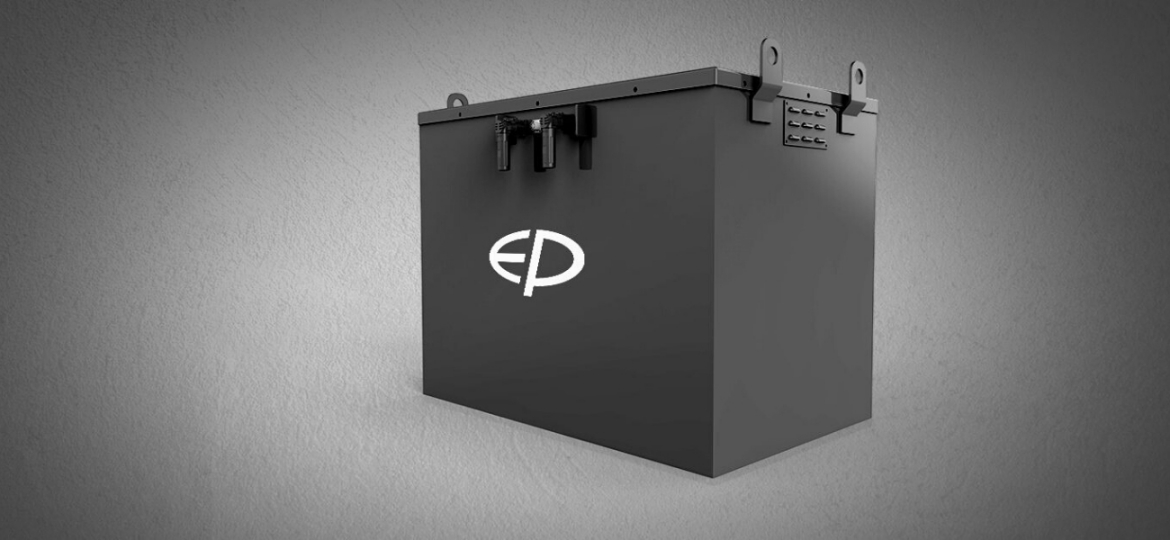
EP UNIQUE
Without a combustion engine or the bulky lead-acid battery the L1 Li-Ion forklift was designed with ergonomics and performance in mind. Due to the compact size of the battery, the truck dimensions are optimised to ensure a maximum in stability with significantly higher safety factors than competitors. The truck can be charged in 2.5 hours and opportunity charged up to 7% in 10 Minutes. Always available when you need it!
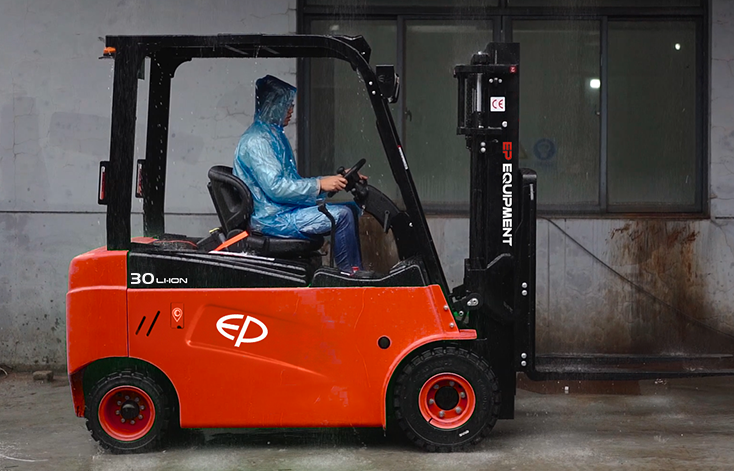
WATERPROOF TRUCK DESIGN
The L1 Li-Ion forklift is designed to replace traditional Diesel / IC trucks, and both the 3 ton and 3.5 ton are IP54 protected. The truck can work outside in the rain when other electric forklift trucks cannot do the same job!
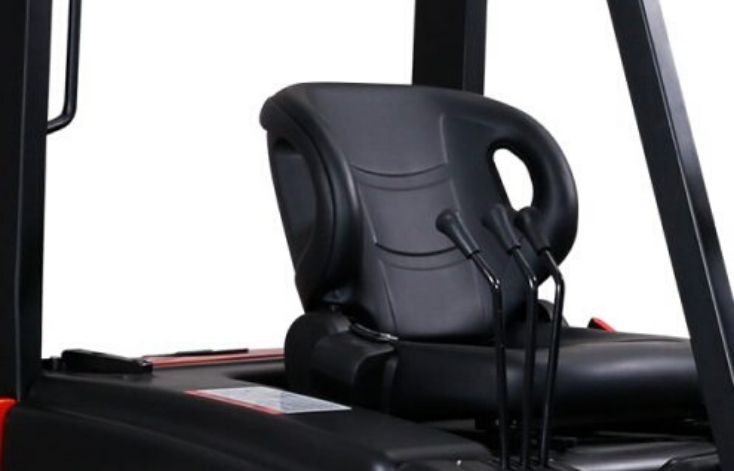
LARGE CABIN
Due to the completely redesigned chassis, the L1 forklift comes with the largest legroom in the industry, eliminating a key traditional disadvantage associated with electric forklift trucks. With the compact battery, drivers have more than sufficient space for their legs, improving operator comfort when working in long shifts.
CPD15L1
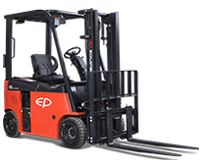
- CAPACITY - 2000 KG
- BATTERY - 48V/500AH
- SELF WEIGHT (INCLUDING BATTERY) - 3540KG
- WHEEL - 4-WHEEL
- TURNING RADIUS - 1715MM
CPD18/20TV8
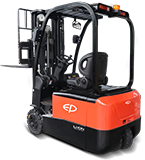
- CAPACITY - 2000 KG
- BATTERY - 48V/600AH
- SELF WEIGHT (INCLUDING BATTERY) - 3860KG
- WHEEL - 4-WHEEL
- TURNING RADIUS - 2135MM
